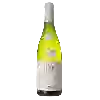
Domaine PagnottaMercurey
This wine generally goes well with poultry, beef or veal.
Food and wine pairings with Mercurey
Pairings that work perfectly with Mercurey
Original food and wine pairings with Mercurey
The Mercurey of Domaine Pagnotta matches generally quite well with dishes of beef, veal or game (deer, venison) such as recipes of beef tagliata with truffle oil, beef bourguignon with cookéo or gigolette of rabbit.
Details and technical informations about Domaine Pagnotta's Mercurey.
Discover the grape variety: Pinot noir
Pinot noir is an important red grape variety in Burgundy and Champagne, and its reputation is well known! Great wines such as the Domaine de la Romanée Conti elaborate their wines from this famous grape variety, and make it a great variety. When properly vinified, pinot noit produces red wines of great finesse, with a wide range of aromas depending on its advancement (fruit, undergrowth, leather). it is also the only red grape variety authorized in Alsace. Pinot Noir is not easily cultivated beyond our borders, although it has enjoyed some success in Oregon, the United States, Australia and New Zealand.
Informations about the Domaine Pagnotta
The Domaine Pagnotta is one of of the world's great estates. It offers 20 wines for sale in the of Mercurey to come and discover on site or to buy online.
The wine region of Mercurey
The wine region of Mercurey is located in the region of Côte Chalonnaise of Burgundy of France. Wineries and vineyards like the Domaine François Raquillet or the Domaine Michel Juillot produce mainly wines red and white. The most planted grape varieties in the region of Mercurey are Pinot noir, Chardonnay and Gamay noir, they are then used in wines in blends or as a single variety. On the nose of Mercurey often reveals types of flavors of non oak, green pear or dark fruit and sometimes also flavors of tomatoes, white pepper or cassis.
The wine region of Burgundy
Bourgogne is the catch-all regional appellation title of the Burgundy wine region in eastern France ("Bourgogne" is the French name for Burgundy). Burgundy has a Complex and comprehensive appellation system; counting Premier Cru and Grand Cru titles, the region has over 700 appellation titles for its wines. Thus, Burgundy wines often come from one Vineyard (or several separate vineyards) without an appellation title specific to the region, Village or even vineyard. A standard Burgundy wine may be made from grapes grown in one or more of Burgundy's 300 communes.
The word of the wine: Ultra raw (or natural raw)
A type of champagne that has not received any dosage liqueur.














